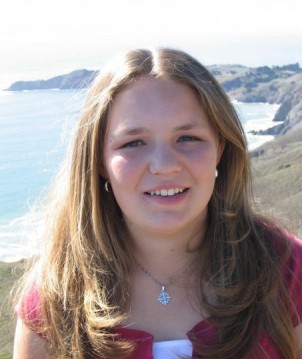By Contributor Angie Funnell
One of my favorite quotes is from St. Francis of Asssisi, “It is no use walking anywhere to preach unless our preaching is our walking.” I am indoctrinated under the holistic, Jesuit, Catholic teachings of Gonzaga University. When I studied abroad in Italy in the fall of my junior year at Gonzaga, a Chinese proverb on the wall of our cramped smelly gym read, “Tell me and I’ll forget; show me and I may remember; involve me and I’ll understand.” Throughout my life I have acknowledged service is a core principle of my nature. I have witnessed the anguishof tears from a homeless boy lost in the depth of a city searching for hope, compiled dirt under the scorching sun of Tijuana to build a roof over a families head and rocked a compromised baby girl to sleep in a township — these are stories. Though heart-rendering, why do we choose to allow these stories to play an integral chapter in our own stories? I have called myself a Christian my whole life. I attended church, led a bible study and prayer groups, invited the spirit to worship with my guitar. Yet, eight years after my baptism (to date this Easter), I find myself searching for the meaning behind the identity of ‘Christian’ or ‘Catholic.’ Why is it that we lose ourselves in an identity we are born into? Do we choose to be born into this identity, or does it choose us? Brokenness fills the pews, loneliness reaches the alter, and sin captivates our souls. We are insecure in our own abilities. In an article, Staying for Tea, Aaron Ausland said, “It is critical to be honest about your own needs and vulnerabilities, to generate opportunities to receive in the places where you serve, to become mutually indebted and to develop real relationships that help you operate at eye-level with the community.” We indulge ourselves with coffee dates, which I am at fault to,and keep up to date with the momentous events of our lives; yet why are we silenced? A roommate shared with me one evening, “Catholics are very quiet… we are hush-hush about a lot of issues trying to protect our identities, making sure we look pretty in the pew Sunday night.” Christ calls us to be brothers and sisters united in a holy, intimate love. He calls us to brotherly love, with conviction. “He comforts us in all our troubles so that we can comfort others. When they are troubled, we will be able to give them the same comfort God has given us,” read 2 Corinthians 1:3-4. In my final semester at Gonzaga, I am deciphering His calling for my life, post-grad. When we were building sand castles in the playground sand pit we were asked what we want to be when we grow up. Now that the time has come, in my vulnerability, my soul longs to serve.Assistant Director of University Ministry and Gonzaga Alumni Michelle Wheatley said, “In terms of the Catholic Church’s view on service, I was always raised to believe that service isn’t something that we do but something that we are, by nature, because of our identity.God’s love inherently contains a mission in it—a mission to love our neighbor, and especially those who are least accounted for in our society.” We are created to be relational human beings. What we think or what we believe is, in the end, of little consequence. The only thing of consequence is what we do. When we serve one another, we are not serving for them, but with them. Our identities cannot be aligned with a religious regiment of life that we do not preach to ourselves. Christ does not call us to be silenced by the injustice in our lives, He calls us to convict one another of truth and pour selfless love into each other. We share our stories with one another as an act of service.







Angie is a beautiful soul and beautiful writer. Thank you for sharing stories of service and impact. I believe!
Love.